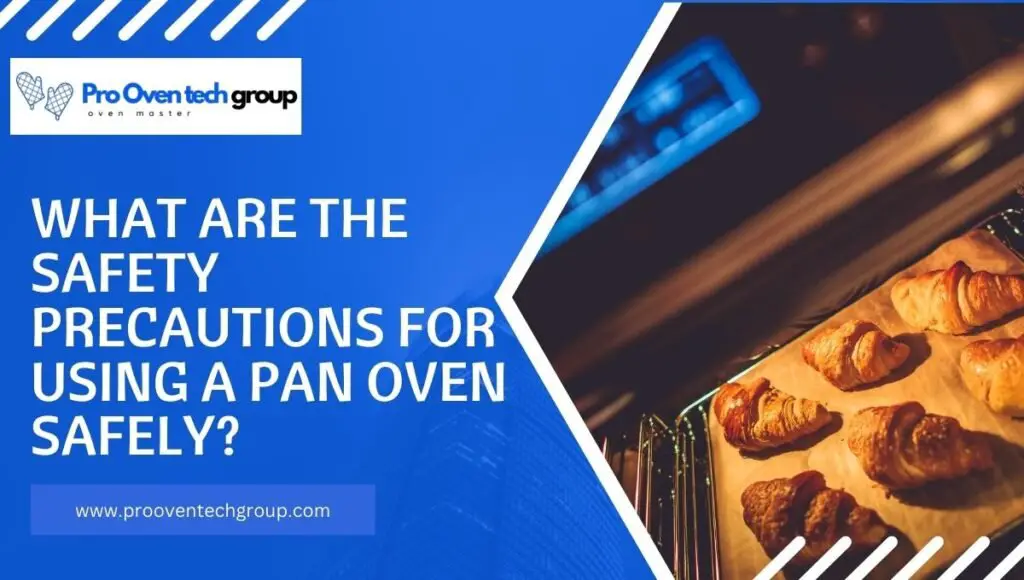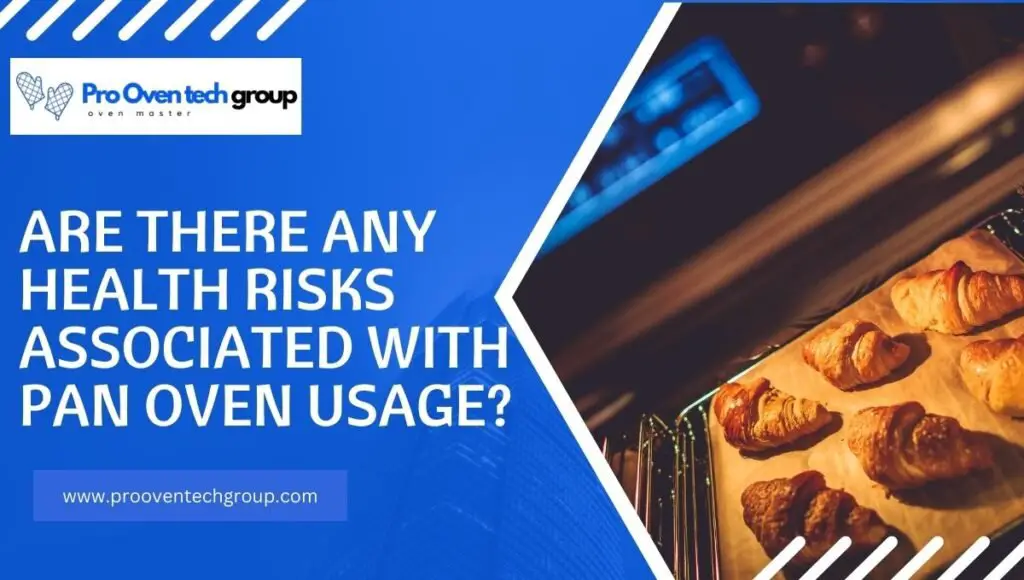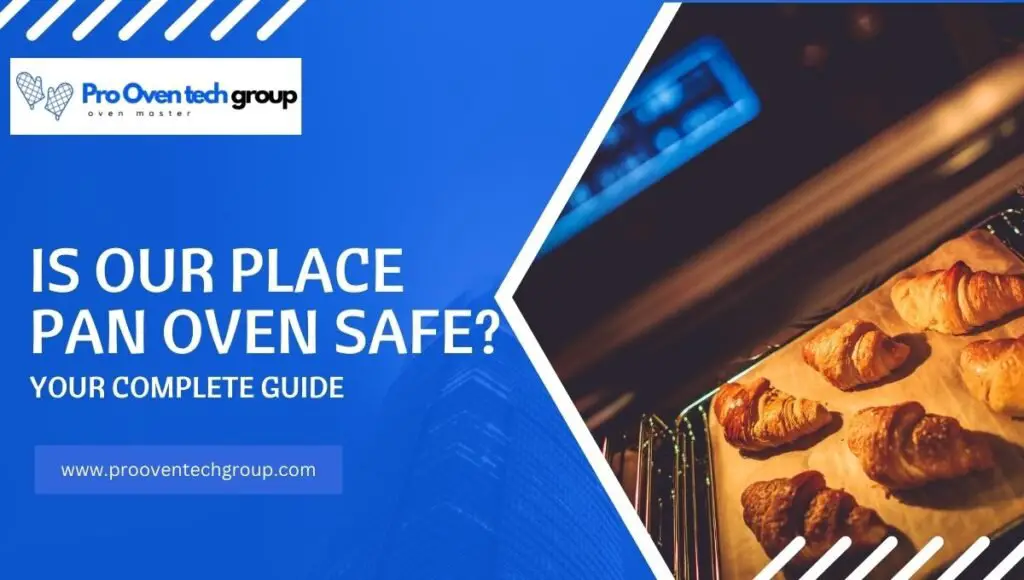Is our place pan oven safe? Are you unsure about what kind of cookware is best for your oven? Whether you’re a home cook looking to upgrade their kitchen or a professional chef in need of the perfect pan, Our Place has the answer.
Yes, Our Place cookware is oven safe. This means you can take your favorite pan from stovetop to oven without any worries.
With its classic designs and modern materials, the Our Place pan is an outstanding choice – but is it oven-safe? This complete guide to using these pans in your cooking journey will help you make absolutely sure that your meals are thoroughly cooked with no concern over damaging your pans.
Table of Contents
What is a pan oven safe material and why do you need it?

Understanding Pan Oven Safe Materials
The term ‘Oven Safe’ refers to cookware that can withstand oven heat (usually up to 500℉) and does not get damaged. Cast iron, stainless steel, and certain types of glass like borosilicate are examples of oven-safe materials.
Importance of Oven Safe Cookware
Using oven-safe cookware is crucial as it allows for versatile cooking techniques, such as starting a dish on the stovetop and then finishing it in the oven. Moreover, it eliminates the worry of cookware damage due to high oven temperatures.
Our Place Pan Material
The Our Place pan is constructed with a sturdy aluminum body – an excellent conductor of heat, and finished with a ceramic non-stick coating. This combination of materials ensures your pan heats evenly and can go from stovetop to oven seamlessly.
Oven Safety of Our Place Pans
Our Place pans are indeed oven safe. However, due to the handle’s construction, it’s recommended to use these pans in ovens set no higher than 400℉. This ensures the longevity and integrity of your pan’s handle.
Caring for Your Our Place Pan
To keep your Our Place pan in top-notch condition, avoid using metal utensils which can scratch the ceramic coating. Hand washing your pan is also recommended. Always ensure the pan has cooled before washing to prevent thermal shock.
How to identify which materials are suitable for pan oven use?
- Look for the ‘oven safe’ label on the packaging or product description.
- Check the cookware’s material composition – certain materials like glass, stainless steel, and cast iron are typically oven-safe.
- Avoid using cookware with plastic handles or lids in the oven as they can melt or warp at high temperatures.
- Read the manufacturer’s instructions or guidelines for recommended oven safety.
- Conduct a temperature test by placing the cookware in a preheated oven at a low temperature and gradually increasing it to check for any signs of damage.
- Consider the type of cooking technique you will use with the pan – some may not require oven-safe materials, while others do.
- Check if the cookware has any detachable parts, such as handles or lids, that may not be oven safe.
- Avoid using cookware with non-stick coatings in the oven unless specifically labeled as oven-safe.
- When in doubt, consult the manufacturer or a kitchenware expert for confirmation on whether a cookware material is suitable for oven use.
- Keep in mind that even if a material is oven-safe, it may have limitations on temperature usage or duration in the oven. Always follow recommended guidelines for best results.
What are the safety precautions for using a pan oven safely?
Precautions While Handling Oven-Safe Cookware
Operating with oven-safe pans requires careful handling and specific measures to ensure safety. Given the high temperatures involved, it’s paramount to protect yourself from potential burns and other injuries.
Use Protective Wear
Always use oven mitts or pot holders when handling hot cookware. This helps to prevent accidental burns. If your cookware has metal handles, be especially cautious, as these can become very hot during oven use.
Avoid Sudden Temperature Changes
Avoid exposing your hot cookware to sudden temperature changes as it can lead to thermal shock, causing your pan to warp or crack. Allow your pan to cool naturally before cleaning it or adding cold food items.
Keep Your Oven Clean
An unclean oven can lead to unwanted smoke or fires. Ensure regular oven cleaning to prevent the buildup of grease and food particles. Moreover, a clean oven ensures better heat distribution, contributing to more evenly cooked food.
Should you buy cookware specifically labelled as “pan oven safe” ?
Purchasing cookware specifically labeled as “oven safe” can be beneficial for its versatility, safety, and efficient heat distribution. This labeling ensures the cookware can withstand oven temperatures without damage, giving you peace of mind. Oven-safe pans grant you the flexibility to try diverse cooking techniques, from stovetop simmering to oven-braised dishes. Lastly, oven-safe materials typically provide superior heat distribution, leading to more evenly cooked and tastier meals. Nevertheless, it’s essential to follow the care instructions to maintain the cookware’s quality over time.
Does shape of cookware matter when it comes to pan oven safety?
The shape of cookware does play a role in its oven safety, but it is not the determining factor. Generally, round or oval-shaped cookware tends to distribute heat more evenly than rectangular or square-shaped options. This can result in better cooking results and reduced chances of hot spots or unevenly cooked food. However, the most critical aspect of oven safety is using materials that can withstand high temperatures, regardless of their shape. So, while the shape may contribute to overall performance, it should not be the only consideration when choosing oven-safe cookware.
Are there any health risks associated with pan oven usage?

- Exposure to high temperatures can cause some materials, such as non-stick coatings or plastics, to release harmful chemicals into the air.
- Inhaling these chemicals could lead to respiratory problems, headaches, and in rare cases, long-term health effects.
- Prolonged exposure to high heat while cooking can also lead to the breakdown of nutrients in food and the production of potentially harmful compounds.
- It is crucial to follow recommended guidelines for oven usage and choose materials that are known to be safe at high temperatures to minimize health risks.
- Regular cleaning and maintenance of your oven, including removing any buildup or residue, can also help reduce potential health hazards.
Conclusion Is our place pan oven safe
In the end, selecting the right cookware for oven use is crucial for optimal cooking results and your safety. Paying attention to material composition, shape, and recommended guidelines will help you make an informed decision when purchasing cookware. Taking proper care of your pans and following safety precautions while using them can also ensure their longevity and protect your health.
FAQS
Q1. The Always Pan Amazon?
A1. The Always Pan is a popular cookware product sold by the brand Our Place, and it can be purchased on their website or other online retailers such as Amazon.
Q2. Our Place oven Pan review?
A2. The Always Pan from Our Place has received positive reviews for its versatile design, even heating capabilities, and durability. However, it’s always recommended to read product reviews and do thorough research before making a purchase.
Q3. our place always pan, $95?
A3. Yes, the Always Pan from Our Place is priced at $95. However, discounts and promotions may be available at certain times of the year. So it’s always worth checking for deals before purchasing.
Q4. How do I know if my pans are oven safe?
A4. You can check the packaging or product information to see if your pans are labeled as oven-safe. If not, you can consult the manufacturer or a kitchenware expert for confirmation. It’s always better to err on the side of caution and avoid using non-labeled cookware in the oven.
Q5. Why are some pans not oven safe?
A5. Pans may not be oven safe due to their material composition, which can lead to warping, cracking, or releasing harmful chemicals at high temperatures. It’s essential to always check the recommended guidelines and choose cookware made from materials known to be suitable for oven use.

